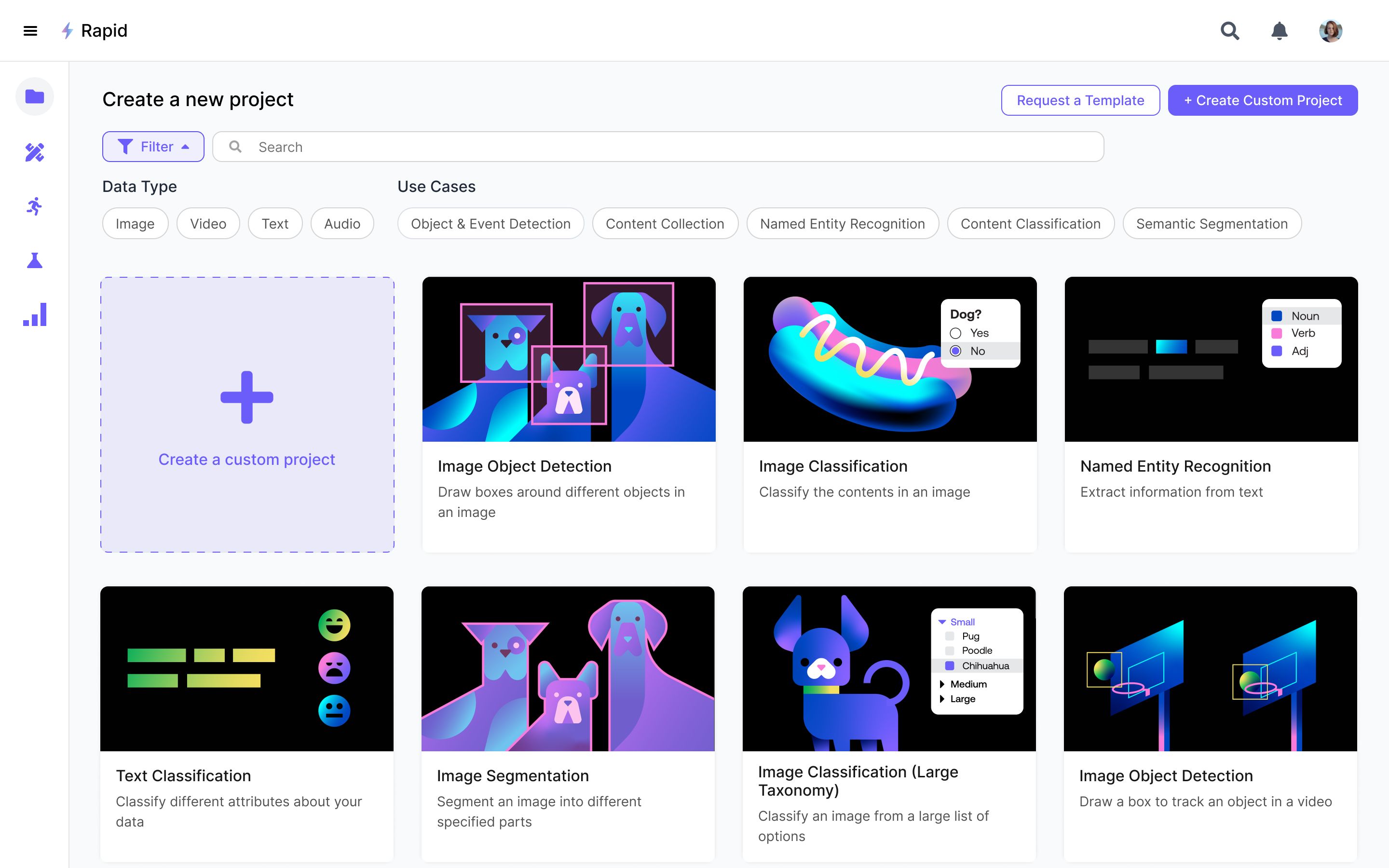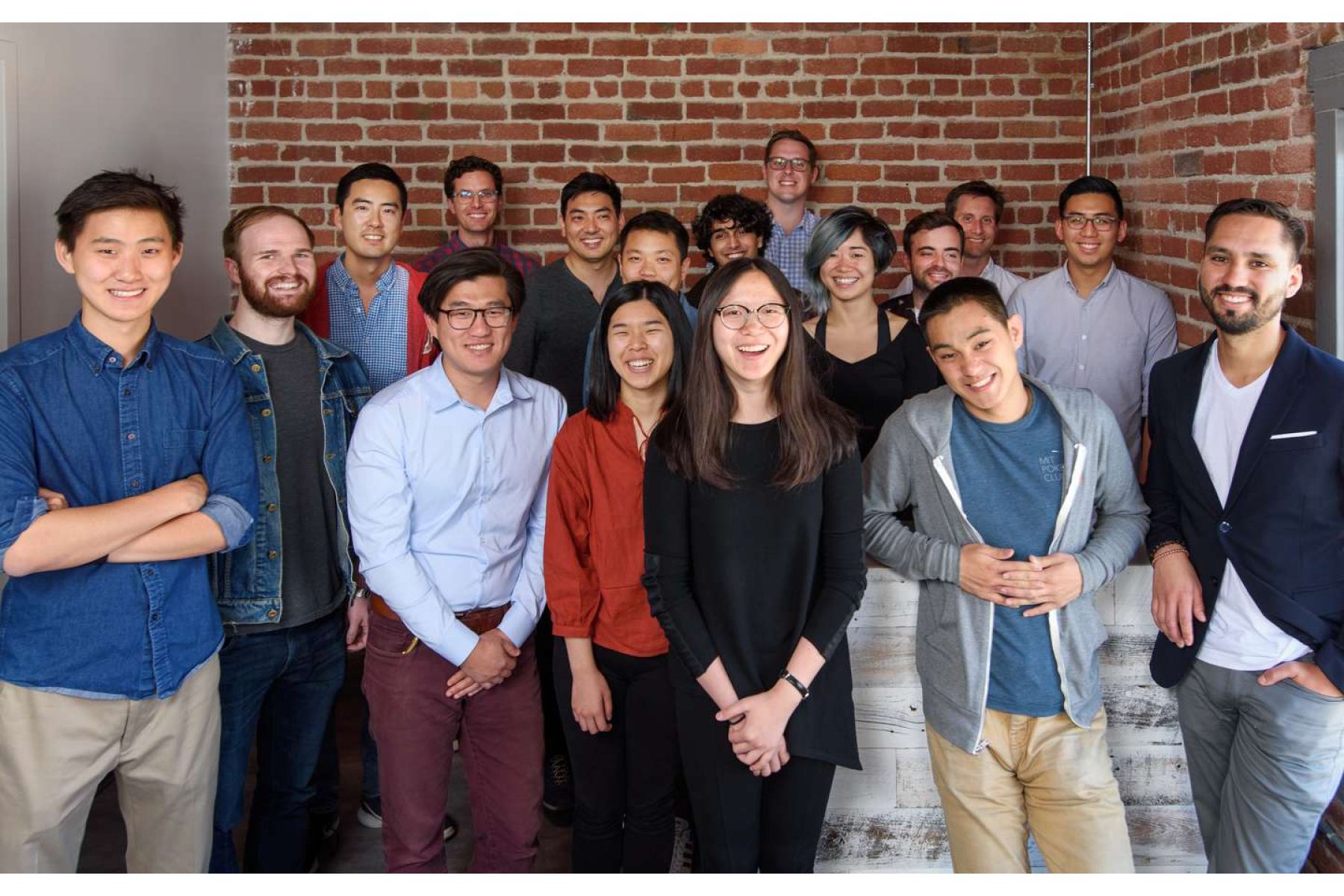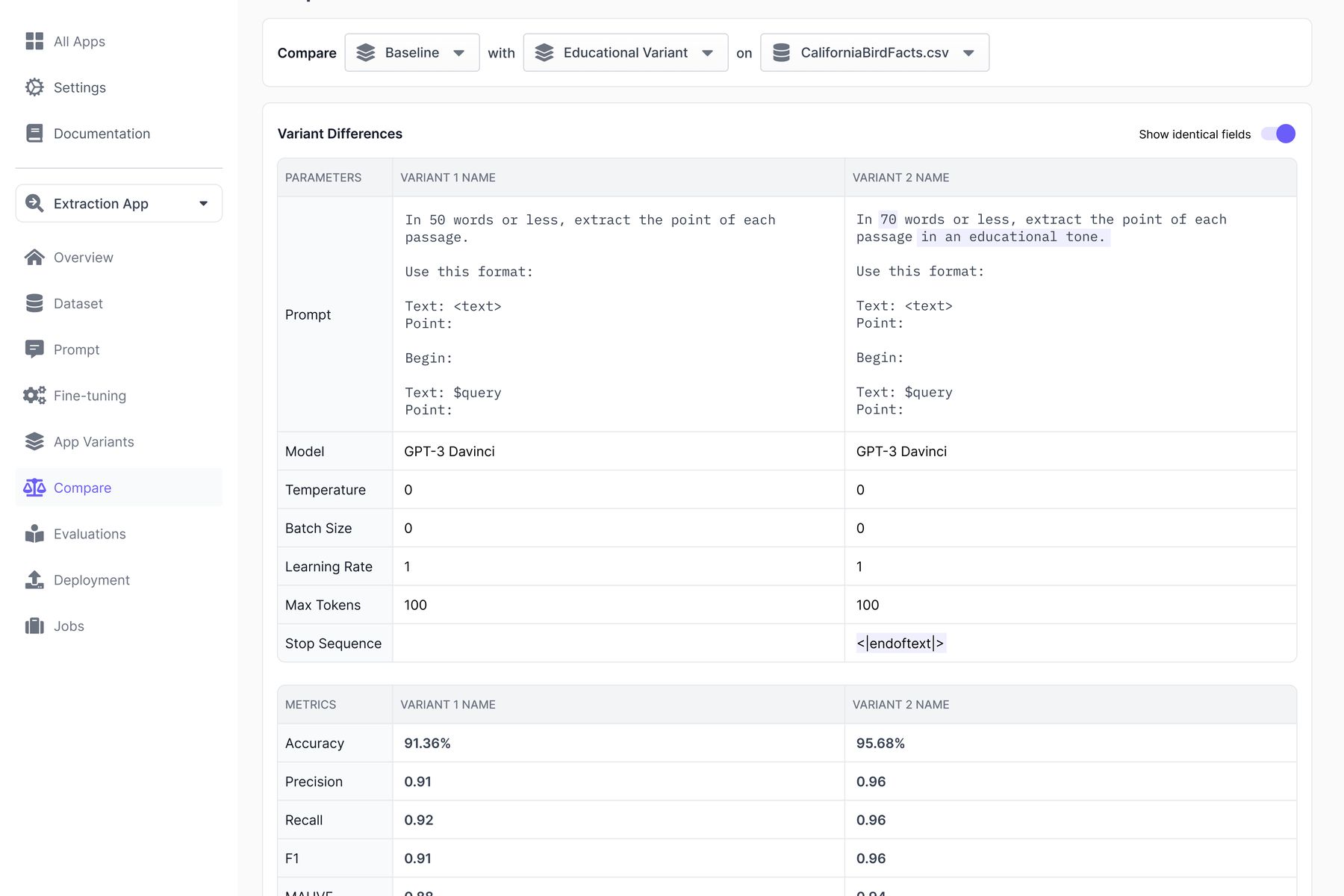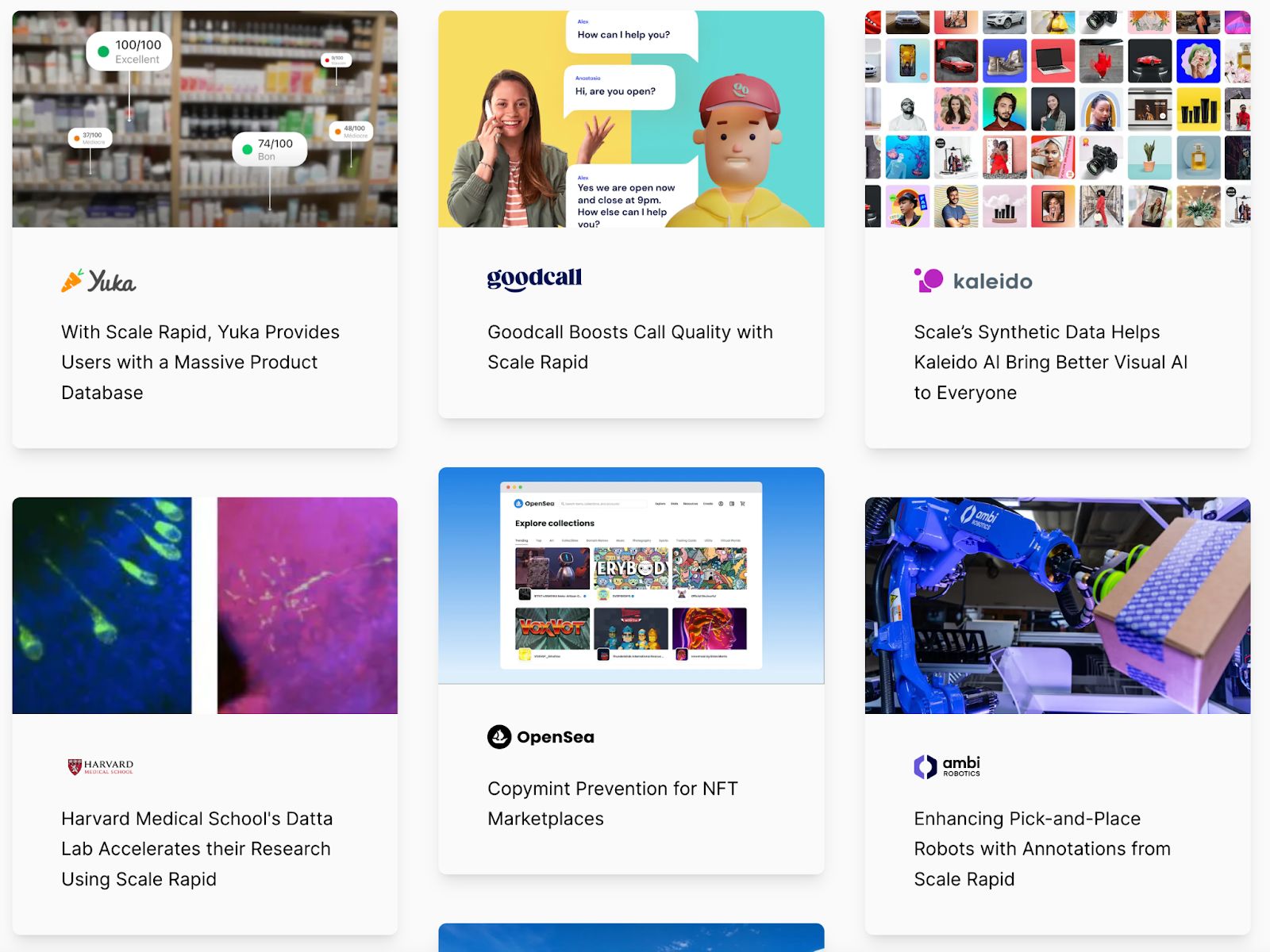Scale AI: Why Data Will Power the AI Revolution

Scale AI emerged from a fairly small-stakes problem. Alexandr Wang, its 26-year-old founder and CEO, wanted to know when to restock his fridge.
Wang grew up in Los Alamos, New Mexico, the son of two physicists working at the national lab in town. That upbringing helped spark his interest in science and technology. In high school, he excelled in math, physics, and coding competitions, and worked for two tech companies. In 2015, he enrolled at MIT to study computer science, where he received perfect grades in his first year. But he had that grocery problem. He decided to code his way out of it.
Wang could see that artificial intelligence and machine learning were transforming the world. “First we built machines that could do arithmetic,” he says, “but the idea that you could have them do these more nuanced tasks that required what we view as humanlike understanding was this very exciting technological concept.” He looked around for a side project and decided to build a camera inside his fridge that would tell him if he was running low on milk.
After a few weeks, he realized there was no way he’d get enough data to train his system to properly quantify his fridge’s contents. A realization struck him. He envisioned AI over the next 20 years. “We’re going to build incredible things with AI,” he says. “What are the hurdles? It became really clear that data was going to be one of those.” That’s when he came up with Scale, what he calls “data infrastructure to power the AI revolution.”
"First we built machines that could do arithmetic, but the idea that you could have them do these more nuanced tasks that required what we view as humanlike understanding was this very exciting technological concept."
— Alex Wang, Scale AI
Wang dropped out of MIT after a year and joined the tech accelerator Y Combinator with a small team. They couldn’t power the AI revolution singlehandedly, so they narrowed their efforts to a use case that had captured the world’s attention: autonomous vehicles. Self-driving cars need to learn to recognize pedestrians, stop lights, other cars, and more. They can’t do it on their own; they need humans to label images for them so they can learn by example. Scale recruited humans to do the labeling for car companies, so the companies could train their AI on those images.
To build their business, Scale needed to get in front of clients’ faces. So they traveled to Computer Vision and Pattern Recognition (CVPR), a big AI conference. “We would be super scrappy,” Wang says. “We’d go from booth to booth with a laptop with a demo on it.” The gambit worked. “And then as we grew, it became more applicable to other industries of AI, whether that’s for satellite data, or e-commerce data, or large internet companies, or insurance companies, or U.S. government organizations.”
Zhichun Li, one of Scale’s first employees, recalls a big client meeting in the South Bay. She and two other employees were all young, like Wang, and wore backpacks. Someone commented that it looked like a field trip. “It was just funny how you bring in a small group of very young, talented people and hand them this problem,” she says. “And we’re just going to solve it.”

Scale Rapid's project creation user interface, the fastest way to production-quality labels, with no data minimums.
Rapid Iteration
One of Scale’s most popular solutions to data-labeling is a service called Rapid, which was spearheaded by Li. Imagine you’re a customer. You go to the site and click “Label My Data.” You can start with a template, or create your own, then upload data, whether it’s images, video, audio or spreadsheets. You upload instructions for labeling and create a calibration batch. Within a few hours, the batch is completed and you receive feedback noting anything unclear in the instructions. You can iterate until you work out all the kinks. Then the rest of your data is free to be labeled.
Scale Rapid is self-serve, on-demand labeling to train AI with high-quality ground-truth data and enables machine-learning engineers and researchers to receive labels and instruction feedback in a matter of hours and scale to production volumes in days. Rapid integrates with Scale’s ecosystem of products to add data into existing ML data pipelines. Customers benefit from the company’s ML expertise and infrastructure, as well as its human-in-the-loop network.
Now, “any ML engineer in the world can access it and get high-quality data back quickly,” Li says. While “Scale is getting people the data that they need to train the models,” she notes, “it is also accelerating and shortening the experimentation loops that they need to get to the perfect model.”
"Scale is getting people the data that they need to train the models. It is also accelerating and shortening the experimentation loops that they need to get to the perfect model."
— Zhichun Li, Scale AI
Rapid’s users include Block (formerly Square). One of Block’s services is to help clothing merchants list products on Amazon or Google, which requires labeling parts of the listings from their databases. People highlight the fields for brand and color and expected customer age. Cassandra Ung, a software engineer at Block, says her team switched from MTurk to Rapid and hasn’t looked back. It saves them time, and people on the Scale team have been “very helpful and responsive to all of our emails, which is very nice.” (One of Scale’s credos is “Earn customer love.”)
At-Bay, another Rapid user, offers cyber insurance, covering clients when, for instance, hackers steal valuable digital assets like unreleased films. Every week they review three thousand potential clients, each with up to five Web domains, and they need to categorize those domains as related to specific industries. They’ve also tried other labeling services, but Almog Shunim, At-Bay’s VP for data and research, says the return on investment with Rapid has been higher. “There’s a lot of back and forth that you need to refine your documentation,” he says, and Rapid makes perfecting those instructions easy. “The way that it’s automated today is great.”

Members of the Scale team, 2018.


Alex presents at Scale's TransformX Conference, an event that brought together 30,000 AI leaders and practitioners, and over 120 of the world's brightest AI leaders, visionaries, practitioners, and researchers across industries to explore operationalizing AI and Machine Learning.
Growing with the Company
Since its early days, Scale has, well, massively scaled, and its founder has grown along with it. Wang now oversees a successful business employing hundreds. Not everyone can go from writing programs to selling products. “Even though he was young when we started, his ability to do enterprise sales was unparalleled,” Li says. Many people rely on connections made over a long career, but Wang still managed to build connections and strike deals, she says, which has been one of the key drivers of Scale’s growth, “and you can see how he’s gotten better and better and better over the years.”
Li says, Wang understands people’s perspectives well. “So I think the reason he’s so good is that he can figure out what people want and make sure that we can deliver on what they want.” She suspects that he also thinks of sales in terms of a graph, the computer-science term for a set of nodes and their connections. “You can build a relationship path there,” Li says. It helps that he’s in the tech industry. “He’s extremely technical, which has definitely helped build credibility.”
"I think [Alex's] strength is that he knows that there are certain things he’s not good at. And he brings people in to help him with it."
— Zhichun Li, Scale AI
Wang’s cognitive rigor has also helped him as a manager. “He has an extreme amount of intellectual honesty,” Li says. “We don’t lie to ourselves, ever.” If something’s broken, they don’t pretend it’s not. Along the same lines, “I think his strength is that he knows that there are certain things he’s not good at. And he brings people in to help him with it.” Wang used to play violin in orchestras and quartets, and he appreciated that the people around him were better in some ways. “They show you cool things and challenge you, and there’s this dynamic where you’re all pushing each other together,” he says. “That same dynamic applies to teams.” Wang describes one of his hiring principles: Surround yourself with people not only who are smart, ambitious, and hardworking, but who make you better. “People who help reinforce your best qualities and call you out on your worst,” he says.
Li says she can relate to the challenge of managing people at a young age; she was 21 when she began leading Rapid. “It’s really scary,” she admits. But she notes that Wang has done a good job of giving people both space to operate and also personalized feedback. He can no longer give everyone such attention, as he’s hired professional managers, but she says he still has a clear picture of how to structure the organization and envisions career paths for many of his employees to help it, and them, grow.
Understanding that he needs help along the way, Wang has engaged an advisor, Jeff Wilke, the former CEO of Amazon Worldwide Consumer. “Alex is a learner,” Wilke says. “When he gets new data, he changes his mind. That’s true of any leader,” Wilke says, but “the best leaders do that faster and are able to teach others what they’ve just learned so that the organization grows with them.”
The same coding chops that help Wang as a salesperson also help him as a manager, Wilke says. “Followers choose their leaders. And followers in technical companies want to work for people with incredible technical competence.” Wilke notes that Wang is also a clear communicator and a good writer, which helps scale his influence. (Wang keeps a Substack blog to share his insights with the world.)
"The number one thing that you should care about when you are doing your work is: How does that advance the world?"
— Alex Wang, Scale AI
Communication is one element of being authentic. Wang “doesn’t let the pressures of running a company at this stage modify his authenticity,” Wilke says. Wilke notes some of Wang’s quirks, like an extensive sneaker collection. “If I get a pair of shoes that is interesting, he’s going to be the first person to notice.” (“I love crazy shoes,” Wang says.) Wang believes authenticity has high stakes: When hiring, “we need people who give a shit about Scale and our mission,” he says. “The number one thing that you should care about when you are doing your work is: How does that advance the world?”
Wilke says that Wang has “incredible courage” and “audacity” and is “not afraid to take risks” and “place big bets.” All of the big bets are followed up by hard work, of course. Wang admits he’s optimistic but says he takes big risks only if he sees a path to success. If they do A, B, and C, the goal should be obtainable. “Maybe it’s the engineer’s mindset, but if you give me a challenge, I try to figure out how to make it happen. And that, I think, manifests as a willingness to take risks.” Making it happen is not easy. Li says he’s “relentless.” Wilke notes several of the company’s eight credos. In addition to “Earn customer love” and “Intellectual rigor, open mind,” there’s “Why Not Faster.”
Another credo is “Team flow.” Wang says learning to manage teams has been challenging but he’s grateful to his team. Sometimes five people can accomplish more than ten or a hundred individuals could, he says. “That’s the magic of humanity.”

With just a few clicks, marketers and brands can create stunning visual content for ad creatives, campaigns, and social media with Scale Forge.

Scale Spellbook allows users to build, compare, and deploy large language model apps.
Giving People Superpowers
Scale offers several products beyond data labeling. Catalog Forge allows marketers and e-commerce companies to create AI-generated creative product imagery in seconds. Nucleus enables teams to manage, test and debug their datasets, in addition to tracking model performance. Spellbook is a platform for building, comparing, and deploying large language model applications." “The goal is to build an ecosystem with Rapid being at the beginning of the lifecycle,” Li says.
Wang believes developers underappreciate the importance of good training data. “Most organizations treat data as an afterthought,” he says. “At the end of the day, they’re like, ‘Wow, the AI didn’t do what I hoped it would. And so AI is borked or broken. That’s not true.” Usually, they didn’t set up their data infrastructure carefully.
"We’ve created an experience for the machine learning developer that they’ve literally never had before. They can get data for their project very quickly, at very high quality, without having to talk to anyone."
— Alex Wang, Scale AI
That may be because data preparation is hard work. Wang explains how Scale got to where it is: “being able to take really hairy problems, slowly but surely figure out how to wrap your arms around them, and then turn those into really simple solutions for customers.” Rapid, he says, solves a really hairy problem. The result: “We’ve created an experience for the machine learning developer that they’ve literally never had before. They can get data for their project very quickly, at very high quality, without having to talk to anyone.”

Learn more about the ways in which Scale’s vast customer base uses the product.
This experience has won them an impressive list of clients. Meta, Microsoft, Open AI, General Motors, SAP, PayPal, Flexport and the U.S. Army. They even work with giant tech firms like Microsoft, which, one would think, is big enough to solve these problems in-house. But focus on data infrastructure helps Scale innovate. “It’s what we’re obsessed about. We sweat the details,” Wang says. “And if you do that over a long enough time period, you build incredible technology that, thankfully, ends up being useful to the entire community.”
Wang is especially proud that Scale has been useful to the U.S. Air Force and Army, since both his parents worked for a national lab, another government organization. “I always felt like if you were able to build technology that’s useful for the government and serves our country,” he says, “that would be a great honor.”
“It’s not going to be about AI replacing humans. It’s going to be about AI as a tool in humans’ toolkits to do incredible new things.”
— Alex Wang, Scale AI
Wang still sees a bright future for AI. It could, he says, help model the climate, improve healthcare, solve the food crisis, reduce international conflict, automate business processes, discover pharmaceuticals, and manage cities’ use of resources. (It’s already doing some of these things.) The potential is “totally astronomical.”
He thinks a lot about how technology, especially AI, impacts society, and sometimes draws on his reading in philosophy and science fiction. An important idea for him is that of augmentation—which is what Scale helps accomplish. “It’s not going to be about AI replacing humans,” he says. “It’s going to be about AI as a tool in humans’ toolkits to do incredible new things.”
Published — Feb. 8, 2023
-

-
